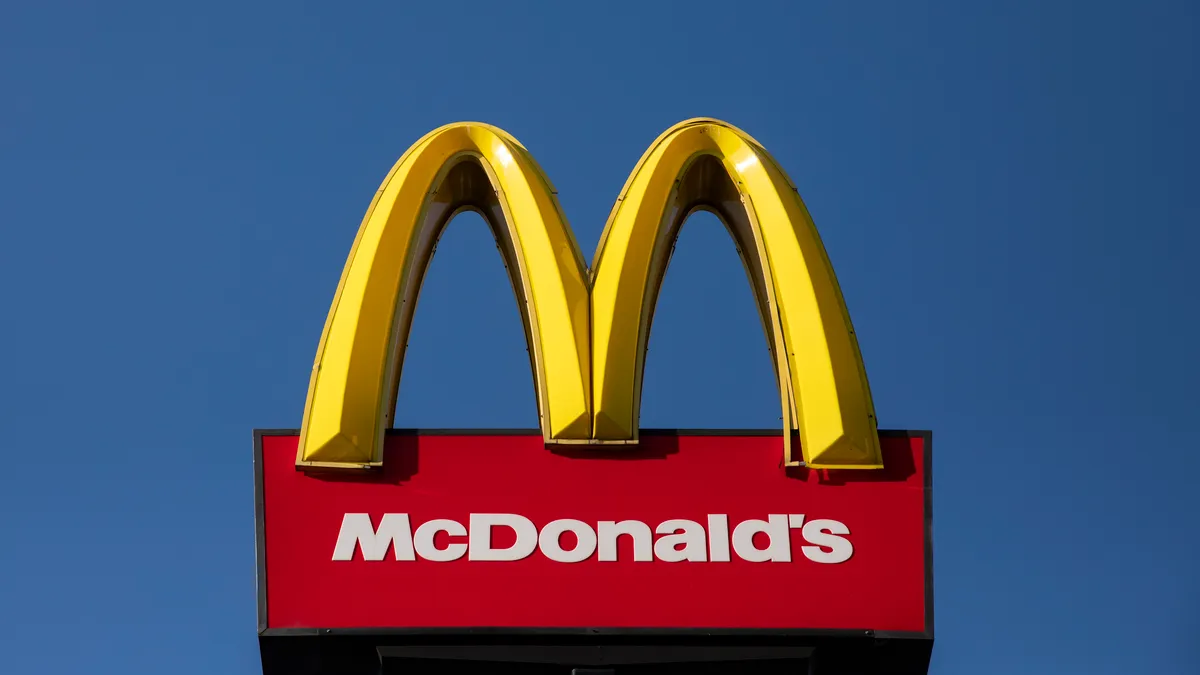UPDATE, Aug. 9, 2021: McDonald's said in a memorandum filed Thursday that the amended complaint filed by James Byrd Jr. and Darrell Byrd should be dismissed. The company said the second complaint did not correct deficiencies noted in the first complaint and instead "doubles down" on allegations saying McDonald's persuaded the plaintiffs and other Black franchisees into economically unattractive locations — a claim the judge previously dismissed without prejudice. The memo claims the plaintiffs continued to "rely upon the same conclusory and vague allegations, such as McDonald's Corporation's alleged history of discrimination, that this Court previously found wanting." McDonald's claims the second amended complaint does not issue any new allegations and that it still doesn't meet the minimum requirements to satisfy a discrimination complaint.
Dive Brief:
- Two Black McDonald's franchisees, brothers James and Darrell Byrd, have issued an amended class-action lawsuit against the chain that claims it intentionally covered up a significant net income gap of over $400,000 annually between Black and White operators. The plaintiffs' previous complaint was dismissed in June because it didn't meet minimum allegations to satisfy a discrimination case.
- The suit argues McDonald's conceals details about the debt required to operate units in low-income Black markets from Black operators and from the National Black McDonald's Operators Association. Like in the previous lawsuit, the Byrds claim that McDonald's pushes Black franchisees toward restaurants that have higher employee turnover and increased security and insurance costs.
- This complaint is just the latest lawsuit lobbed against the chain recently. McDonald's is currently contending with a $10 billion suit that alleges racial stereotyping in its advertising strategy, as well as sexual harassment complaints.
Dive Insight:
The suit claims McDonald's deceived Black franchisees "into believing that they are performing similarly to White franchisees" by using "cash flow" to measure store performance. Between stores owned by Black and White operators, cash flow discrepancies were typically tens of thousands of dollars annually — a far cry from the $400,000 net income gap the Byrds claim exists.
For example, the suit outlines that Black franchisees' annual net incomes is often below $50,000 or operating at losses. James Byrd claims that he invested more than $1 million for the initial purchase of his Houston store in 2019, topped off by subsequent hundreds of thousands of dollars in improvements, but his net income totaled just $38,941.
McDonald's denies these claims.
"Like their two previous attempts, Plaintiffs' Second Amended Complaint is based on unfounded allegations and fails to state a viable claim. Should this case proceed, we are confident the facts will show that McDonald's did not discriminate against the Plaintiffs or any other Black franchisees, " Loretta Lynch, legal counsel to McDonald's, said in a statement. "McDonald's will continue to defend against baseless claims like these that have no basis in fact."
Even if this amended lawsuit is dismissed as well, the accusations add to a growing stain of alleged racism and discrimination at the Golden Arches. The company has taken steps to make changes at both the corporate and store level — including pledging to put more of its supply chain spend toward diverse businesses and launching global diversity, equity and inclusion benchmarks last summer — but complaints like these signal there may be more work ahead.










